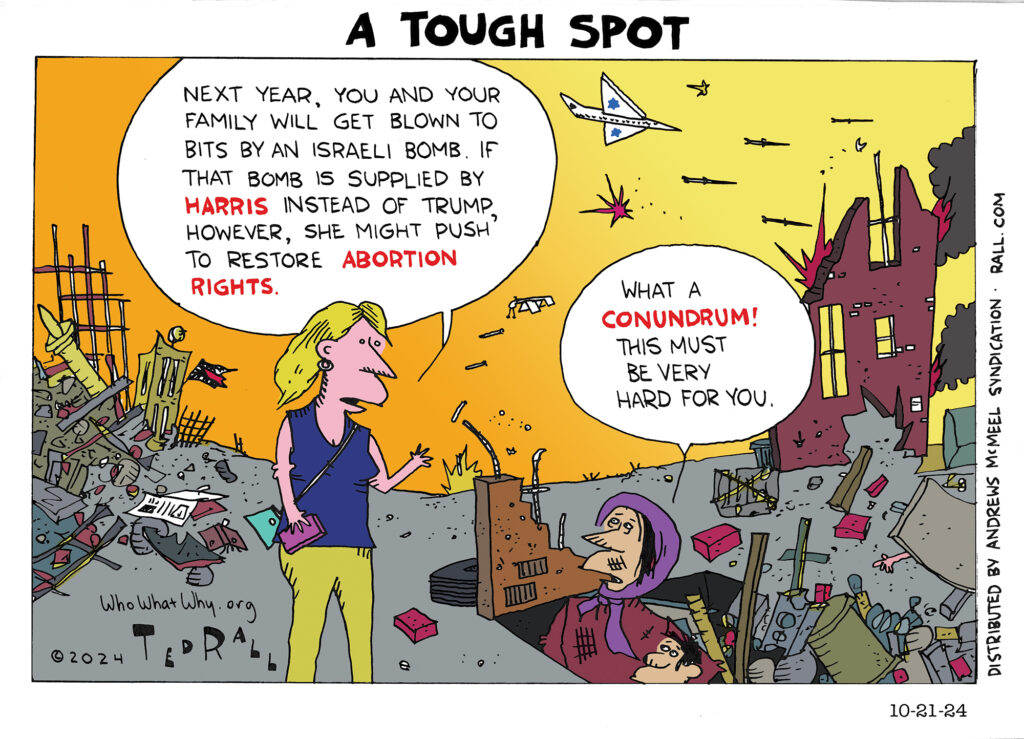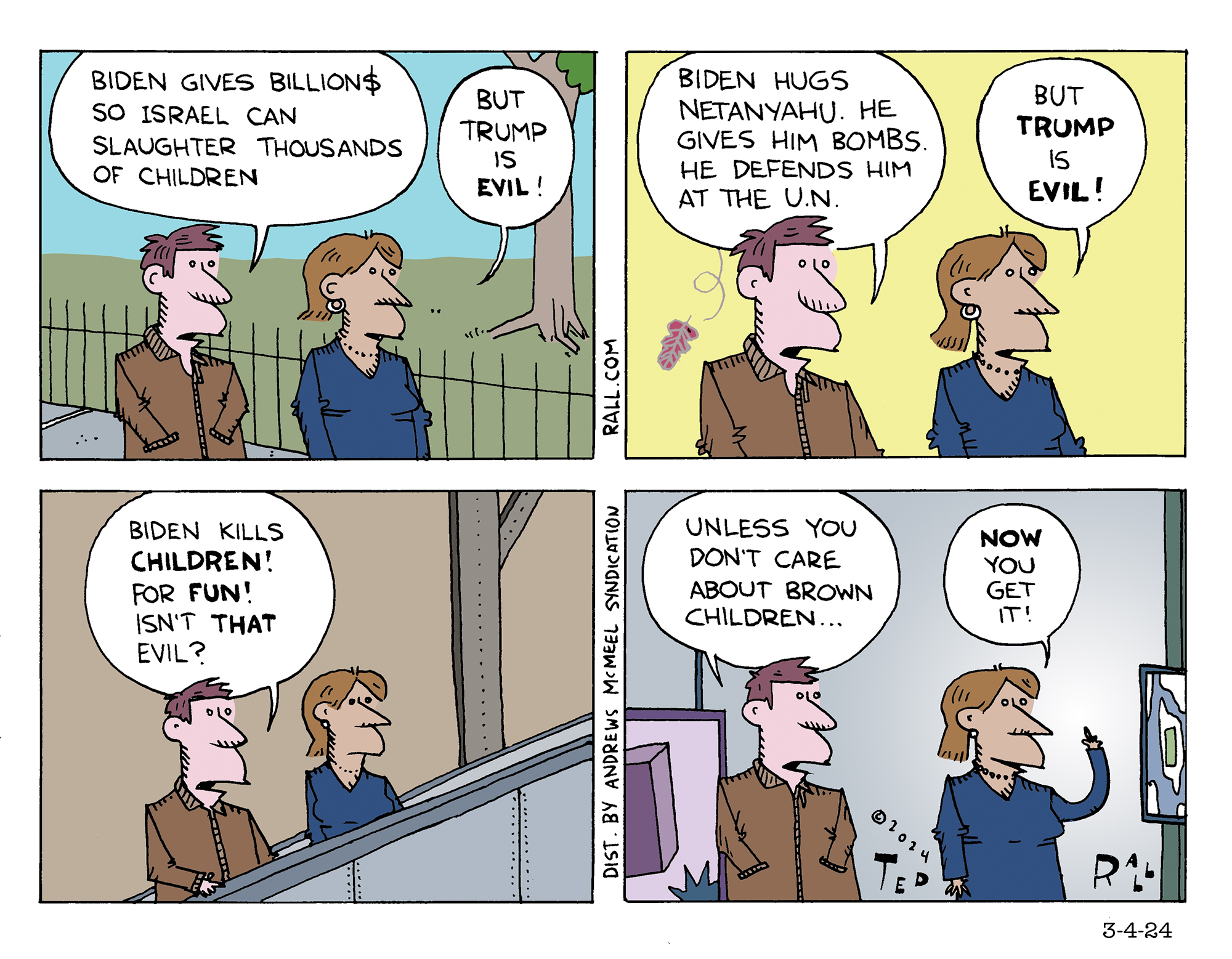 The world of politics, as well as the globe writ large, was shaken to its neoliberal foundations this week by the surprise victory of Green Party candidate Jill Stein, who did not qualify for debates and was accorded little media coverage, in the campaign for American president. Stein, a 74-year-old physician, will mark a trifecta of history as the nation’s first woman, Jew and third-party victor since 1860 to become commander-in-chief.
The world of politics, as well as the globe writ large, was shaken to its neoliberal foundations this week by the surprise victory of Green Party candidate Jill Stein, who did not qualify for debates and was accorded little media coverage, in the campaign for American president. Stein, a 74-year-old physician, will mark a trifecta of history as the nation’s first woman, Jew and third-party victor since 1860 to become commander-in-chief.
Going into Election Day, polls as well as Las Vegas odds makers had shown the major-party candidates, Democrat Kamala Harris and Republican Donald Trump, locked neck-and-neck in a virtual dead heat, with seven key battleground states considered a tossup. The polls, it turns out, were dead wrong.
A majority of American voters, it’s now clear, collectively decided that the two-party system, derided by critics as a “duopoly,” was no longer serving the country or their needs and needed to be sent a message: be responsive to our wants or needs, or we’ll kick you out.
Pundits, editors and opinion researchers are reeling at this unprecedented and radical turn of events. “Odds that are more likely than not do not preclude an unlikely outcome,” polling expert Nate Silver of The New York Times said. “But this is different. Tens of millions of voters changed their minds, not about which candidate party to support, but about the system itself.” Moreover, voters deliberately misled researchers about their decision to cast ballots outside the two major parties.
“It is really so shocking?” asked Ted Rall, a gadfly cartoonist and columnist. “Third-party voters have been vote-shamed for so long, it may have been easier to express themselves in the privacy of the voting booth than to fend off vote-shaming critics who told them that, say, ‘a vote for Stein is a vote for Trump.’”
Shelly Jackson, a 37-year-old dental hygienist who has voted for both Democrats and Republicans, said she decided to vote for Stein after determining that she was unhappy with both Harris and Trump. “Neither of them had much to say, or at least not much to say that was credible or intelligent, about the biggest issues we face as a nation: climate change, stagnant wages, poverty, unaffordability of healthcare. After I did some research, I found third-party and independent candidates like Chase Oliver and Cornel West who were intelligent and thoughtful. Trump was obsessing over a murdered squirrel and Harris—even she didn’t know what she was saying. In the end, I went with Stein.”
Until late on Election Night, Stein voters believed they were lone voices in the dark, casting protest votes that, as usual, wouldn’t affect the outcome. Typical was JoAnn LeCroix of Baton Rouge: “I told my male friends I was voting for Trump and my female friends I was voting for Kamala. That night, when I saw the results and Jill got to 270 electoral votes and CNN called it for her, I couldn’t believe it.”
Acting on fears of increased government regulations and the belief that a Stein Administration might reduce America’s military projects around the world and make it easier for workers to organize, join unions and negotiate for improved wages and benefits, the Dow Jones Industrial Average tumbled 38% on the news, to recover later during the day after the election as civil engineering-related and green-energy sector stocks surged in expectation of increased government inspection.
Traditional U.S. adversaries including China, Iran and Cuba expressed joy at Stein’s win, promising friendlier ties with a Stein Administration if it seeks them. Ukraine’s President, Volodomyr Zelensky, said his country would be ready for U.S.-brokered peace talks with Russia. Israeli Prime Minister Benjamin Netanyahu announced his intention to launch a nuclear strike in the occupied Gaza Strip in anticipation of a shift of U.S. policy away from military and financial support for Israel.
One of many signs that something dramatic had occurred took the form of an unprecedented joint press conference between Kamala Harris and Donald Trump. “Jill Stein is a hater, a bad woman who totally cheated like a dog. No one has ever seen anything like it,” Trump said as Harris nodded by his side, calling on the Democrats and Republicans to unify against a common threat. “Looking at this holistically,” Harris said, “it’s holistically impossible not to arrive at a holistic conclusion that something has happened that should not have happened. There’s no way that tens of millions of Americans suddenly started thinking for themselves. Stop the steal!” Democrats and Republicans promised to file lawsuits to challenge the results, pressure Stein electors to defect and, if need be, use military force to prevent what they called “a coup from within.”
Stein’s Green Party, with no members in either the House or Senate, will face challenges in pushing legislation through Congress, long-time Beltway observers predict. One person given anonymity to speak freely, said: “This is an epic disaster for the rules-based order and the stability upon which it relies. Citizens will expect changes to improve their lives—and now we may be forced to give in. This is what happens when you foolishly entrust democratic institutions to protect democracy.”
(Ted Rall (Twitter: @tedrall), the political cartoonist, columnist and graphic novelist, co-hosts the left-vs-right DMZ America podcast with fellow cartoonist Scott Stantis. His latest book, brand-new right now, is the graphic novel 2024: Revisited.)

 It may feel surreal, but tens of millions of Americans have already voted and the wild 2024 presidential campaign comes to an end in days. The DMZ America podcast, which began at the beginning of the Biden Administration, reviews how we’ve arrived at this unexpected contest between Trump and Vice President Kamala Harris. Pulitzer Prize-winning cartoonist David Horsey, formerly of the Seattle Post-Intelligencer, joins DMZ co-hosts and cartoonist pals Ted Rall (from the Left) and Scott Stantis (from the Right) to analyze the closing minutes of the race and make their predictions.
It may feel surreal, but tens of millions of Americans have already voted and the wild 2024 presidential campaign comes to an end in days. The DMZ America podcast, which began at the beginning of the Biden Administration, reviews how we’ve arrived at this unexpected contest between Trump and Vice President Kamala Harris. Pulitzer Prize-winning cartoonist David Horsey, formerly of the Seattle Post-Intelligencer, joins DMZ co-hosts and cartoonist pals Ted Rall (from the Left) and Scott Stantis (from the Right) to analyze the closing minutes of the race and make their predictions.

 Many people who typically vote Republican but dislike Trump, and others who typically vote Democratic but dislike Harris, are wrestling with a fundamental dilemma of the voter who lives in a duopoly.
Many people who typically vote Republican but dislike Trump, and others who typically vote Democratic but dislike Harris, are wrestling with a fundamental dilemma of the voter who lives in a duopoly.